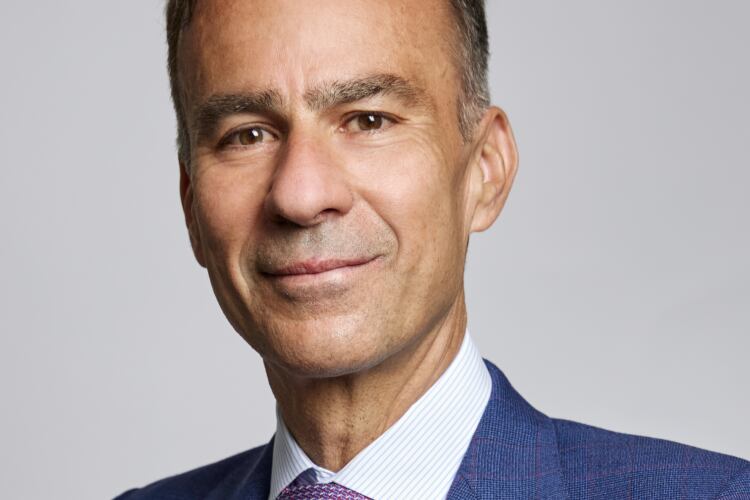Global ingredient tech platform CSM Ingredients has outlined a new approach to sustainability in its ‘Thrive for Impact’ report, released today. The company, which rolled out a new name and structure in 2021 after a series of transformative acquisitions and disposals, is placing ‘society and the planet at the heart of all operations’ in its drive to shape ‘the new future of food’.
This goes beyond empowering sustainability departments or setting targets, chief executive Aldo Uva told us. It means that the company’s sustainability agenda - what it details as an ambition to be ‘net positive’ - is embedded across all business functions, from customer sales to R&D.
“This might be controversial,” Uva explained, “but my vision is that the moment we don’t have to have a chief sustainability officer [that agenda] can be embedded in everything we do... For us, net-positive is embedded in the structure we gave to our business in 2021.”
Releasing its introductory sustainability report, CSM outlined how it is evolving its historical business units to put its sustainability efforts front-and-centre. The document sets the baseline for what CSM says will be ‘incremental’, ‘transparent’, ‘measurable’ concrete actions over the coming years.
As yet, however, CSM has not established specific goals around moving its operations to net zero or published a detailed roadmap of how it plans to drive positive impact. While this might set alarm bells ringing in some NGO circles - for whom a central tenant of any sustainability plan should be reporting progress against measurable targets - Uva assured us that, as a member of the UN Global Compact, science-based targets aligned with the Paris Agreement will come in 2023. But for him, CSM’s net positive approach is both broader and deeper.
“Everything should be encompassed in our direction to do good for the planet and the people through our product. How can we be sure we are doing the right thing? When it comes to targets, you can escape yourself by giving a target in 2040, 2050. That is fine. I’m not saying if you have a 2050 target it is something you won’t honour. But we said, on top of long-term targets, let’s make sure we have a way of working, a modus operandi, that can tell us if we are doing well.
“For us, what does net positive mean? It simply means that through everything we do that is new and contributes to our strategy, we impact the planet’s resources less and less.
“It is not easy, but if you don’t give yourself a bold commitment, you won’t move the needle.”

People, planet, product focus supports business growth
CSM has framed its approach around three pillars: people, planet and product. The company aims to address issues around population health and planetary health through its product platform.
One example of how this can be achieved can be seen in the group’s reformulation toolbox, Uva reflected.
In the context of rising commodity prices and constrained availability, he sees food and beverage companies facing two options: reformulate with the most available, lowest cost ingredients; or reformulate with ingredients that are available and can deliver cost parity – but which are also ‘much better’ for the planet.
This sounds like a bit of a no-brainer, but how can these win-win-win formulations be achieved? Uva believes that a nuanced understanding of the role individual ingredients play in the product matrix is key. “For example,” he told FoodNavigator, “the key is not to substitute one oil with another because it makes no difference from a sustainability point of view. It is about trying to understand the performance of an ingredient within a formulation.”
Functional ingredients can be added to the formulation to reduce the amount of raw materials required. In pastry mixes, for instance, CSM has reduced the need for thickening agent xanthan gum by adding natural fibres. The solution is ‘functionally better’, has a ‘lower footprint’ and is ‘healthier’, Uva explained.
CSM is leveraging innovation in ‘key impact areas’, including plant-based ingredients; packaging and recycled content; and sugar and salt reduction. Through its local sourcing strategy, the company hopes to cut its footprint while supporting biodiversity.
This approach to product innovation delivers benefits for people, planet – and profits. It has promoted the group to enter two new product categories that it says are ‘closely tied to the future of food’: plant-based meat and dairy; and natural, functional ingredients with ‘superior tech performances’.
Sustainable innovation that aligns with customer values is also helping to drive business growth. Indeed, Uva said, a strong sustainability positioning has almost become a prerequisite for securing new business as food companies strengthen their sustainability credentials. “You can’t even sign an NDA with a lot of customers if you can’t show what you are doing to make the planet more sustainable,” he revealed.
From COVID to energy: Crises put food industry at crossroads
The food industry is facing a time of unprecedented disruption. From the ongoing impact of COVID-19 to supply chain challenges, commodity shortages and spiking energy costs, businesses are feeling the impact of input price pressure.
Uva believes we are at pivotal moment in history – and one that offers an important opportunity to safeguard the world of tomorrow. We can either respond to today's challenges by ‘regressive’ strategies to cut costs in the short term at the expense of long-term sustainability, or we can invest in new approaches and technologies that will reduce impact and increase efficiency in the long-term.
“If we don’t use this conjunctural moment to profoundly rethink our approach, we will have lost this crisis and when the next crisis arrives, we’ll be in exactly the same situation,” he warned. “Many companies believe sustainability is a cost. This is not sustainability… We look for solutions that [deliver] cost parity,” the chief executive explained.
As gas prices are driven up by war between Ukraine and Russia, for instance, the situation ‘pushes us to rethink the way our processes are conceived and built’ to ‘lower the consumption of energy’. “You need to enlarge your scope… We need to take this opportunity to drastically reduce consumption of energy, despite the cost.”
For its part, CSM has already installed the first solar panels at 'most' of its sites, with the aim of reaching 100% renewables by 2025.

Uva suggested this long-term approach to investment is key to future proofing the food system.
“We don’t’ need to be shy about investing in research and innovation to tackle the fundamental issues we face. Take the last two years, if this interview was in 2019, we’d have been talking about the future of food, the evolution of plant-based… Today, [we are talking about] COVID restrictions, the Ukraine-Russia situation. This is going to continue. We cannot live with the dream that come January 1st, 2023 everything is going to go back to 2019. Forget about it.
“We need to use this time to change the approach, modify the approach.”
Does he see evidence that the industry is responding positively?
“As in all things you have the early adopters, the followers and the sceptics. I’ve seem more early adopters, I‘ve seen many more followers, and I’m seeing many fewer sceptics. If this crisis is bringing something good, it’s the fact that almost everybody understands the time for action is now.”

